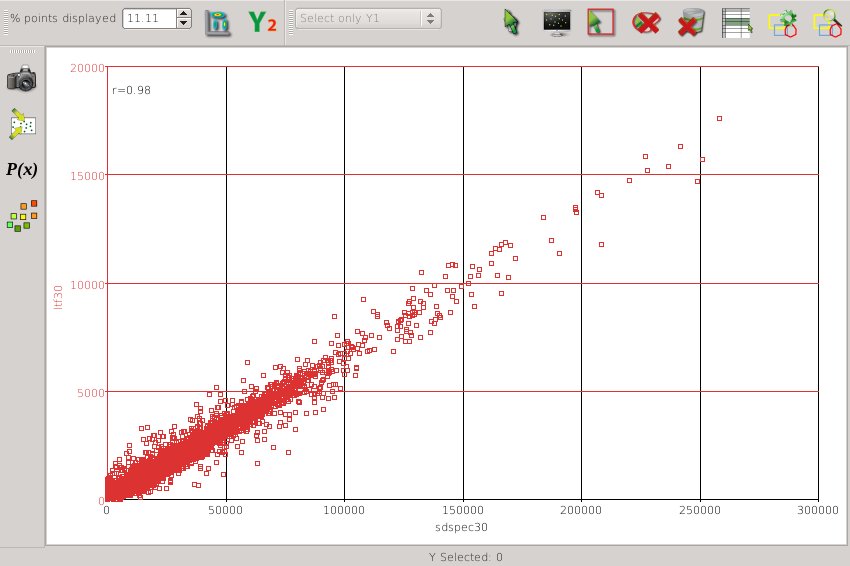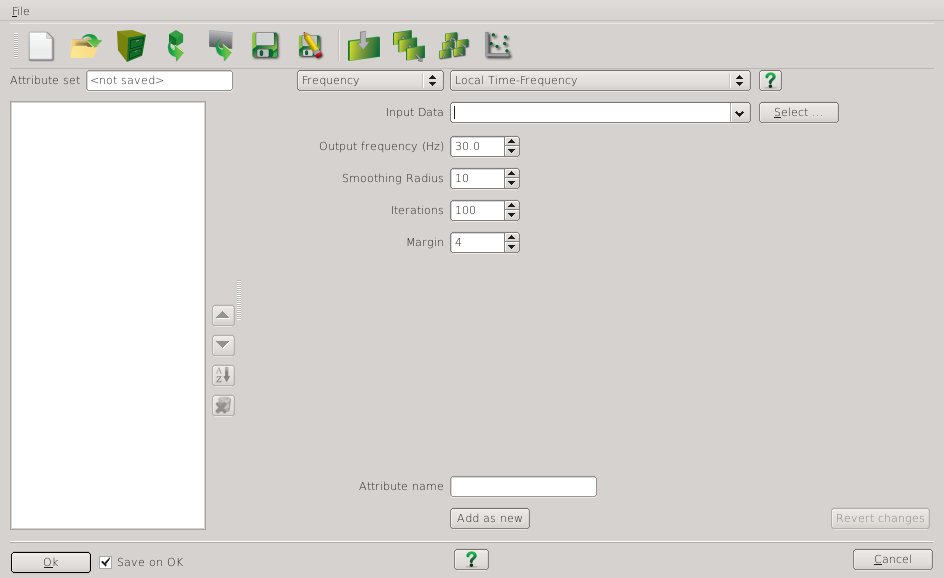LocalAttrib
Categories:
This plugin for the open source seismic interpretation platform OpendTect Version 6.0 or later is a collection of “Local Attributes” based on the work of [Fomel (2007) and others](https://library.seg.org/doi/abs/10.1190/1.2437573"Local seismic attributes. Sergey Fomel. GEOPHYSICS 2007 72:3") for the Madagascar package. At this point only spectral (time-frequency) decomposition using local attributes (previously called the LTFAttrib) is implemented. The predecessor to this plugin (LTFAttrib, now obsolete) had a hard dependency on the Madagascar libraries and was consequently only available for Linux. This dependency has been removed and the plugin is now available for both Linux and Windows.
Spectral (Time-frequency) Decomposition by Local Attributes
Formerly called the LTFAttrib, this is an implementation of the method of local time-frequency analysis as described by Liu, G etal (2011). This decomposition uses least-squares inversion with shaping regularization to estimate the time-varying Fourier coefficients. Its principal advantages over the STFT (short time fourier transform) is it much quicker if only a few frequencies are required and it is generally more accurate for short window lengths.
Examples


The output of the LTF attribute (ltf30) is visually identical and also highly correlated to the OpendTect FFT spectral decomposition (sdfreq30) as shown in the following crossplot of the two attributes.

Crossplot of LTFAttrib vs FFT Spectral Decomposition
Input Parameters
This attribute has 4 parameters:
| NAME | DESCRIPTION |
|---|---|
| Input Volume | The attribute volume to be analysed. |
| Time Gate | Where the attribute is calulated. The time gate does not have to be symmetric. The time gate length is used as the smoothing radius for shaping regularization.The value from the gate centre is output - useful for analysing a zone offset from an horizon. Recommend setting the gate length equal to or less than the FFT window length you would used for the standard OpendTect FFT spectral decomposition. |
| Frequency | The frequency component(s) to estimate. |
| Iterations | The number of inversion iterations. |

LTF Attributes input parameters
Feedback
Was this page helpful?
Glad to hear it! Please tell us how we can improve.
Sorry to hear that. Please tell us how we can improve.